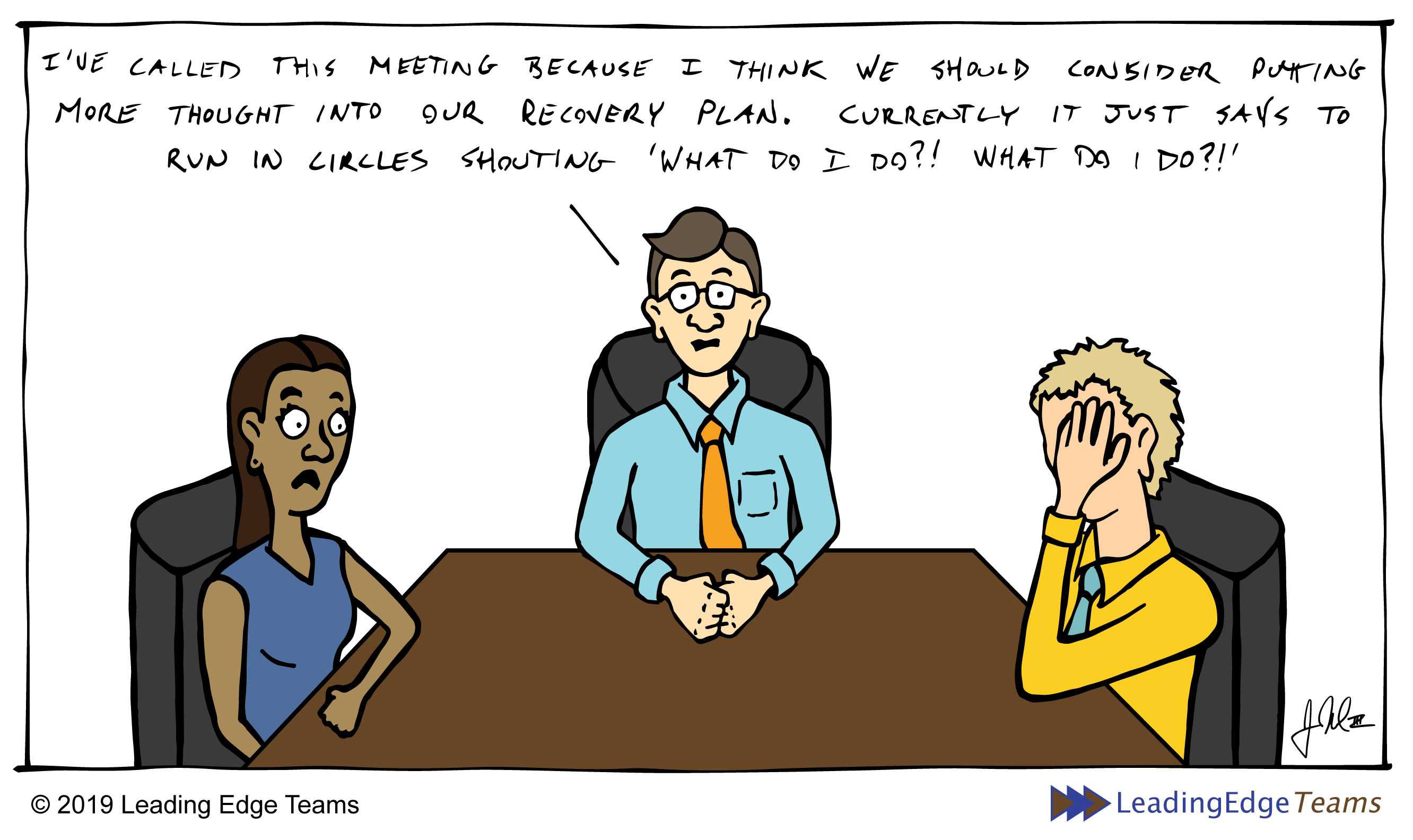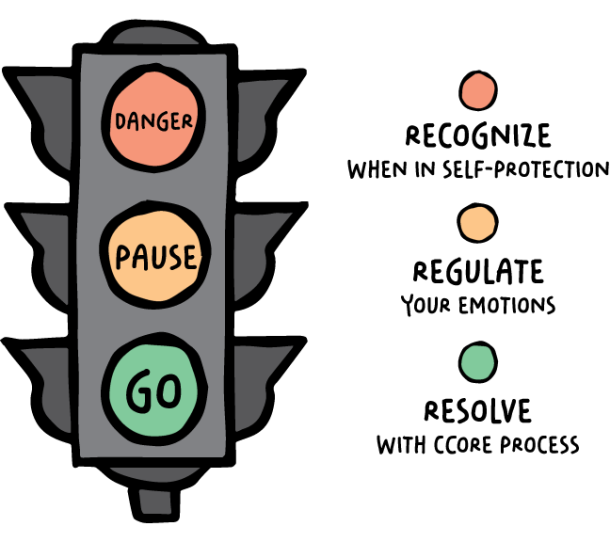Why make recovery planning a business habit? Have you ever made an agreement and then been surprised to find out too late that the agreement could not be met?
There is a common assumption made around agreements that things always go according to plan. The myth is, “We made an agreement that won’t change and everyone will definitely keep,” when in reality this is RARELY true.

In business and in life, change is the only constant. This is why I cannot stress enough the importance of establishing agreements with follow up and recovery. There needs to be a way that you come back to the table, check progress, and adjust commitments as needed. Where you discuss potential challenges before they present themselves, and align on a recovery plan. This way you can mobilize effectively the moment things veer off course.
A defining factor between the success or failure of your business, lies in your ability to get ahead of the curve of change, address issues early and pivot effectively as a team.
Consider for example the online launch of your biggest revenue generating product. There are many moving parts in a big launch, and many ways things could go differently than planned. Let's say your payment processor accidentally double charges your customers and people get so angry that they start immediately cancelling their purchases. How you handle the situation will make all the difference for how things turn out.
The Recovery Plan
Without a recovery plan, people are left to make decisions on their own. For example, someone on the customer service team might try to fix the problem by telling all the customers that they will receive a refund in two weeks (the standard process) angering customers even more, and derailing things even further.
In this situation, the best action to take is to regroup (huddle) and collaborate on the best solution. This will give you the best chance of gaining all the needed perspectives, quickly thinking through alternative solutions, and coordinating the execution of it.
This “regroup” and discussion is your recovery plan. And the higher the stakes and potential issues, the more you need a clear habit of recovery planning.
The components of a recovery plan are simple:
When there are unexpected problems your team needs to know, 1) HOW to surface that they are having issues, 2) WHO to raise the issue to (and who to include,) and 3) WHERE (slack, email, call.)
Recovery planning at the outset helps you avoid a crisis, and prevent wasting resources. It circumvents breakdowns in communication that harm results and damage your team’s morale and ability to work well together.
Set your business up for success. Because when things go wrong and are not addressed effectively, you will ultimately spend excessive time, energy and resources to make it right.
Practice making agreements with clear Recovery built in. When your team has this as a habit — you will get rockstar results!
Now, get out there and lead!
– Annie










